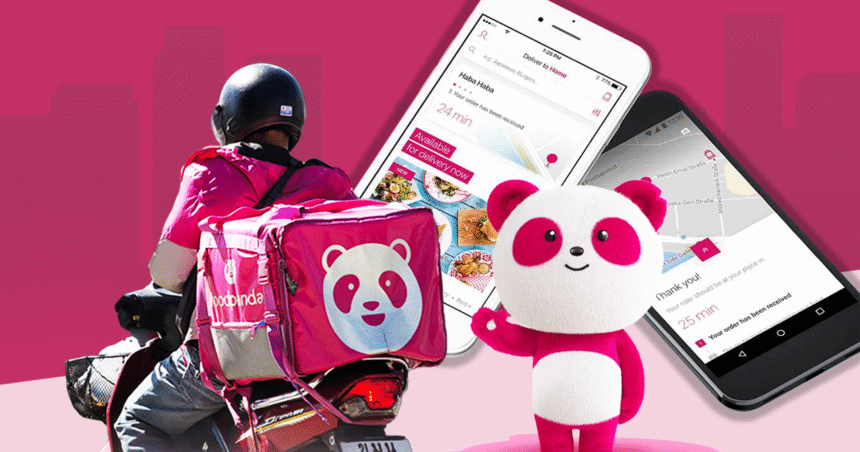Foodpanda shared on Wednesday that it will shut down its services in Thailand by May 23, 2025. This news surprised many customers, partners, and employees. The company, under Germany’s Delivery Hero, pointed to market conditions that no longer fit its long-term plans.
After 13 years, Foodpanda’s departure signals a major change for Thailand’s food delivery scene.
Thailand’s delivery market is tough. Foodpanda claimed just under 15% of the market, falling far behind Lineman Wongnai at 44% and GrabFood at 39.4%. Competition is fierce, and people’s habits shifted after the pandemic, making life harder for Foodpanda.
The company lost over 13 billion baht in the last five years. Even though it cut costs, turning a profit stayed out of reach.
Foodpanda wasn’t alone with these challenges. In 2024, the market shrank by 1% to 86 billion baht. Higher running costs and heavy competition hurt profit margins. Companies like Grab, with their wide range of services in ride-hailing and logistics, pulled ahead. Foodpanda couldn’t keep up and decided to pull back.
Foodpanda Struggled
Foodpanda started in Thailand in 2012 and grew to cover every province. The business soared during the pandemic, offering much-needed convenience. But profits never came. In 2023, Foodpanda made 3.8 billion baht in revenue but still lost 522 million baht. These losses were smaller than in 2022, which saw a 3.255 billion baht shortfall, but financial stability stayed out of reach.
Attempts to sell the business made things more complicated. Delivery Hero tried to find a buyer for its Southeast Asia branches in 2023. Companies like Grab from Singapore and Meituan from China showed interest, but talks failed. With no buyers, closing down became the only real option. Some analysts said this move showed just how serious Foodpanda’s financial troubles were.
Delivery Hero called the shutdown a “geostrategy optimisation,” saying it wants to use its resources in Asia-Pacific countries with better growth. Foodpanda’s Thailand team, which handles marketing and HR, will continue to support other markets in the region. This fits with Delivery Hero’s recent exits from Denmark, Slovakia, Ghana, and Slovenia. After the news, Delivery Hero’s stock jumped 3.7%, a sign that investors welcomed the decision.
J.P. Morgan described the move as “sensible,” pointing out that Foodpanda was a small player in Thailand. Closing up shop lets Delivery Hero focus on where it can win. Still, people are now wondering what will happen to Foodpanda in nearby countries like Laos, where it’s still active.
Foodpanda’s exit affects customers, restaurant owners, delivery riders, and staff. On social media, the company thanked its Thai users and promised to help during the switch. People can order food as usual until May 23. Restaurant partners and riders face a period of uncertainty as Grab and Lineman become the main choices.
Impact on People
The news left many users upset. Social media was filled with posts sharing disappointment and memories. Some people pointed to a 2020 controversy—a rider in a Foodpanda jacket burned a royal portrait, sparking outrage. The company’s attempt to take legal action upset some Thais and may have had lasting effects.
With Foodpanda gone, Thailand’s food delivery market is set to become a two-player race between Grab and Lineman. This could mean fewer choices and higher fees for restaurants. Many on X warned that the two companies would compete even harder for control. Smaller food businesses may struggle if they lose access to more affordable delivery options.
Despite Foodpanda’s exit, Thailand’s restaurant and beverage industry is expected to grow. In 2025, the sector could reach $19.6 billion, up 4.6%. This shows the market remains strong, but Foodpanda’s struggles highlight how hard it is to run a delivery business with low profit margins and high costs.
Foodpanda’s 13 years in Thailand left a mark. The service connected millions of people with their favourite meals, and its pink riders became part of daily life. Still, financial losses and tough competition forced the company to step back. Foodpanda’s goodbye message was full of gratitude and pride, thanking customers, restaurant partners, and riders for their support.
As Foodpanda prepares to close, its influence on Thailand’s food delivery culture remains. It helped shape the industry and opened doors for the companies that followed. The closure is a reminder that only the strongest can survive in this business. For now, Thailand says farewell to a familiar name, while Grab and Lineman look to shape what comes next.
Related News:
Bolt App Launches First Flight-Tracking, Ride-Hailing for Thailand

Geoff Thomas is an award winning journalist known for his sharp insights and no-nonsense reporting style. Over the years he has worked for Reuters and the Canadian Press covering everything from political scandals to human interest stories. He brings a clear and direct approach to his work.













